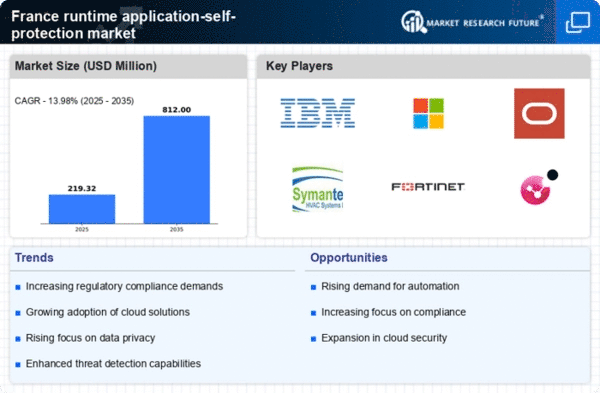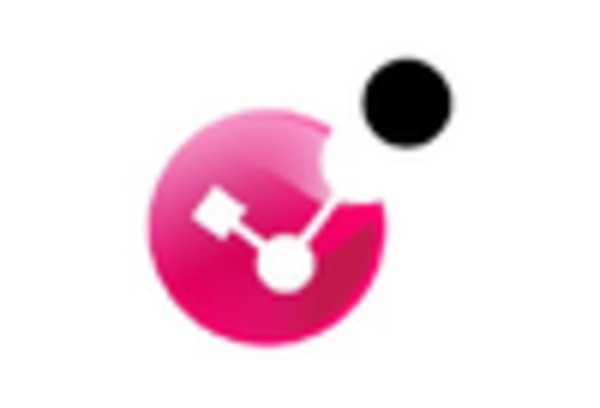Rising Cybersecurity Threats
The increasing frequency and sophistication of cyberattacks in France has heightened the demand for robust security solutions. Organizations are increasingly recognizing the necessity of implementing runtime application-self-protection market solutions to safeguard sensitive data and applications. In 2025, it is estimated that cybercrime could cost businesses globally over $10 trillion annually, prompting French companies to invest in advanced security measures. The runtime application-self-protection market is positioned to benefit from this trend, as it offers real-time protection against threats, thereby enhancing overall security posture. As businesses strive to protect their digital assets, the The runtime application-self-protection market is likely to see significant growth. This growth is driven by the urgent need for effective cybersecurity solutions.
Regulatory Compliance Pressures
In France, stringent data protection regulations, such as the General Data Protection Regulation (GDPR), compel organizations to adopt comprehensive security measures. The runtime application-self-protection market plays a crucial role in helping businesses comply with these regulations by providing mechanisms to protect sensitive information from unauthorized access. Non-compliance can result in hefty fines, reaching up to €20 million or 4% of annual global turnover, whichever is higher. As organizations seek to avoid these penalties, the demand for runtime application-self-protection solutions is expected to rise. This market is likely to expand as companies prioritize compliance and invest in technologies that ensure data integrity and security.
Increased Investment in IT Security
Organizations in France are significantly increasing their investments in IT security, recognizing the critical importance of protecting their digital infrastructure. The runtime application-self-protection market is poised to benefit from this trend, as companies allocate more resources to safeguard their applications. In 2025, IT security spending in France is expected to exceed €10 billion, reflecting a growing awareness of the need for comprehensive security solutions. This investment surge is likely to drive the adoption of runtime application-self-protection technologies, as businesses seek to implement proactive measures to defend against evolving cyber threats.
Shift Towards Digital Transformation
The ongoing digital transformation across various sectors in France is driving the adoption of innovative technologies, including runtime application-self-protection market solutions. As businesses increasingly migrate to digital platforms, the need for enhanced security measures becomes paramount. In 2025, it is projected that the digital economy in France will account for over 20% of the national GDP. This shift necessitates the integration of security solutions that can protect applications in real-time, thereby fostering trust among consumers and stakeholders. The runtime application-self-protection market is likely to thrive as organizations seek to secure their digital assets amidst this transformation.
Growing Awareness of Application Security
There is a notable increase in awareness regarding application security among organizations in France. As businesses recognize that traditional security measures are insufficient to combat modern threats, the runtime application-self-protection market is gaining traction. This heightened awareness is leading to a shift in focus towards securing applications throughout their lifecycle. In 2025, it is anticipated that the application security market in France will grow by over 15%, indicating a strong demand for solutions that provide real-time protection. The runtime application-self-protection market is likely to play a pivotal role in this evolution, as organizations seek to enhance their security frameworks.
















